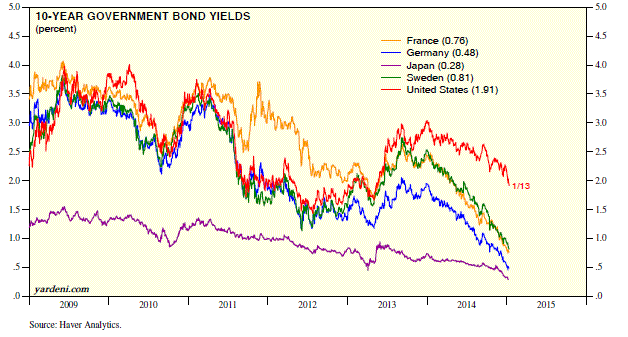
Despite a slowing economy, industrial REITs are enjoying higher returns. Their outperformance can be attributed to e-commerce which continues to grow at a rapid pace. Low initial investments and the ease-of-re-leasing are two other factors that drive their success. Let's take a look at some of the reasons warehouse REITs have done well. These are just a few:
E-commerce drives second-half performance of industrial REITs
E-commerce is a boom for industrial REITs. According to the U.S. Commerce Department (USCD), e-commerce sales grew by 44% during the June-end quarter. And, eMarketer predicts that e-retail sales will account for 14.5% of U.S. retail sales in 2014. This is good news for industrial REITs, which benefit from the demand for industrial spaces from e-commerce companies.
While many sectors are struggling, the COVID-19 regulations seem to have little effect on the industrial sector. There is a rising demand for warehouses and distribution centers due to increased e-commerce. Last-mile industrial properties located in high-income communities are seeing strong occupancy, pricing, and rental growth. E-commerce is also a major driver of REIT performance.

Modern, strategically-located centres
Investors who are looking to maximize their risk-adjusted returns and make the best investment choice for themselves, Industrial REITs can be a great option. Warehouses in the last mile' of their distribution network should benefit from the trend of retailers moving supply chains closer to consumers. These warehouses are more valuable and generate cash flow quicker than their peers. These warehouses have some key features. They are more efficient and modernized, which makes them a smart investment.
First, REITs have to be aware of the modern tenant's needs. They need mezzanine space and rooftop solar panels. It is also important to consider employee amenities and flex space. Additionally, logistics customers need a flexible facility. Automation is changing how industrial space is planned and designed. Kiva Systems, a robot that sorts inventory and moves pallets, was acquired by Amazon in 2012. If you are a company that relies heavily on robots such as these, it is a good idea to be near existing labor sources.
Very low initial investment
Investors looking to diversify their portfolios or generate income can choose a warehouse REIT as an investment option. These investment vehicles have been around since decades and provide growth, income and diversification. These investment vehicles have been around for decades and have provided high returns, attractive dividend yields and a good inflation hedge. REITs are also simple to trade and buy. You have other options if your goal is to avoid high fees from financial advisors.
Warehouse REITs give investors the opportunity to tap into the rapidly growing economic sectors. Healthcare facilities are one of America's fastest growing industries. Other options include retirement communities and outpatient care centers. Warehouse REITs offer great returns. Not only are they more profitable than real property investments, but they also have a higher growth rate, are less complex to manage, require less paperwork, and are much liquider than real-estate investments.

Re-leasing is simple
You can increase your investment return by investing in a REIT. These types of investments can be very profitable as they are always in high demand. Selecting a region with high housing prices, steady rents and low vacancy is key. The San Francisco Bay Area is a good example of an area that can be profitable for a REIT. The first quarter saw a 7% increase in warehouse rents in San Francisco.
FAQ
What are the benefits of stock ownership?
Stocks are less volatile than bonds. The stock market will suffer if a company goes bust.
But, shares will increase if the company grows.
To raise capital, companies often issue new shares. This allows investors to purchase additional shares in the company.
Companies can borrow money through debt finance. This allows them to access cheap credit which allows them to grow quicker.
When a company has a good product, then people tend to buy it. Stock prices rise with increased demand.
As long as the company continues to produce products that people want, then the stock price should continue to increase.
What are the benefits to investing through a mutual funds?
-
Low cost - buying shares from companies directly is more expensive. Purchase of shares through a mutual funds is more affordable.
-
Diversification: Most mutual funds have a wide range of securities. One security's value will decrease and others will go up.
-
Professional management - professional managers make sure that the fund invests only in those securities that are appropriate for its objectives.
-
Liquidity - mutual funds offer ready access to cash. You can withdraw your money whenever you want.
-
Tax efficiency- Mutual funds can be tax efficient. Because mutual funds are tax efficient, you don’t have to worry much about capital gains or loss until you decide to sell your shares.
-
For buying or selling shares, there are no transaction costs and there are not any commissions.
-
Easy to use - mutual funds are easy to invest in. You only need a bank account, and some money.
-
Flexibility - you can change your holdings as often as possible without incurring additional fees.
-
Access to information: You can see what's happening in the fund and its performance.
-
You can ask questions of the fund manager and receive investment advice.
-
Security - know what kind of security your holdings are.
-
You have control - you can influence the fund's investment decisions.
-
Portfolio tracking - You can track the performance over time of your portfolio.
-
You can withdraw your money easily from the fund.
There are some disadvantages to investing in mutual funds
-
Limited selection - A mutual fund may not offer every investment opportunity.
-
High expense ratio - Brokerage charges, administrative fees and operating expenses are some of the costs associated with owning shares in a mutual fund. These expenses will reduce your returns.
-
Lack of liquidity - many mutual funds do not accept deposits. They can only be bought with cash. This limits your investment options.
-
Poor customer service - there is no single contact point for customers to complain about problems with a mutual fund. Instead, you should deal with brokers and administrators, as well as the salespeople.
-
It is risky: If the fund goes under, you could lose all of your investments.
Why is marketable security important?
A company that invests in investments is primarily designed to make investors money. This is done by investing in different types of financial instruments, such as bonds and stocks. These securities have attractive characteristics that investors will find appealing. They can be considered safe due to their full faith and credit.
Marketability is the most important characteristic of any security. This is how easy the security can trade on the stock exchange. You cannot buy and sell securities that aren't marketable freely. Instead, you must have them purchased through a broker who charges a commission.
Marketable securities include corporate bonds and government bonds, preferred stocks and common stocks, convertible debts, unit trusts and real estate investment trusts. Money market funds and exchange-traded money are also available.
Investment companies invest in these securities because they believe they will generate higher profits than if they invested in more risky securities like equities (shares).
Can you trade on the stock-market?
Everyone. All people are not equal in this universe. Some have better skills and knowledge than others. So they should be rewarded.
Other factors also play a role in whether or not someone is successful at trading stocks. If you don’t know the basics of financial reporting, you will not be able to make decisions based on them.
These reports are not for you unless you know how to interpret them. Understanding the significance of each number is essential. You must also be able to correctly interpret the numbers.
Doing this will help you spot patterns and trends in the data. This will help to determine when you should buy or sell shares.
If you're lucky enough you might be able make a living doing this.
How does the stock markets work?
Shares of stock are a way to acquire ownership rights. A shareholder has certain rights. He/she can vote on major policies and resolutions. He/she can demand compensation for damages caused by the company. He/she also has the right to sue the company for breaching a contract.
A company cannot issue shares that are greater than its total assets minus its liabilities. It is known as capital adequacy.
A company that has a high capital ratio is considered safe. Companies with low ratios of capital adequacy are more risky.
What is a fund mutual?
Mutual funds can be described as pools of money that invest in securities. They provide diversification so that all types of investments are represented in the pool. This helps reduce risk.
Managers who oversee mutual funds' investment decisions are professionals. Some funds offer investors the ability to manage their own portfolios.
Mutual funds are often preferred over individual stocks as they are easier to comprehend and less risky.
How do I invest in the stock market?
Through brokers, you can purchase or sell securities. A broker sells or buys securities for clients. You pay brokerage commissions when you trade securities.
Brokers often charge higher fees than banks. Banks are often able to offer better rates as they don't make a profit selling securities.
A bank account or broker is required to open an account if you are interested in investing in stocks.
If you use a broker, he will tell you how much it costs to buy or sell securities. Based on the amount of each transaction, he will calculate this fee.
Ask your broker about:
-
Minimum amount required to open a trading account
-
How much additional charges will apply if you close your account before the expiration date
-
what happens if you lose more than $5,000 in one day
-
How many days can you maintain positions without paying taxes
-
How you can borrow against a portfolio
-
Transfer funds between accounts
-
How long it takes transactions to settle
-
The best way to sell or buy securities
-
how to avoid fraud
-
How to get help when you need it
-
How you can stop trading at anytime
-
whether you have to report trades to the government
-
How often you will need to file reports at the SEC
-
What records are required for transactions
-
If you need to register with SEC
-
What is registration?
-
How does this affect me?
-
Who should be registered?
-
When should I register?
Statistics
- The S&P 500 has grown about 10.5% per year since its establishment in the 1920s. (investopedia.com)
- Individuals with very limited financial experience are either terrified by horror stories of average investors losing 50% of their portfolio value or are beguiled by "hot tips" that bear the promise of huge rewards but seldom pay off. (investopedia.com)
- US resident who opens a new IBKR Pro individual or joint account receives a 0.25% rate reduction on margin loans. (nerdwallet.com)
- Even if you find talent for trading stocks, allocating more than 10% of your portfolio to an individual stock can expose your savings to too much volatility. (nerdwallet.com)
External Links
How To
How to Trade in Stock Market
Stock trading is the process of buying or selling stocks, bonds and commodities, as well derivatives. Trading is French for "trading", which means someone who buys or sells. Traders buy and sell securities in order to make money through the difference between what they pay and what they receive. This is the oldest type of financial investment.
There are many different ways to invest on the stock market. There are three types of investing: active (passive), and hybrid (active). Passive investors simply watch their investments grow. Actively traded traders try to find winning companies and earn money. Hybrid investors take a mix of both these approaches.
Passive investing involves index funds that track broad indicators such as the Dow Jones Industrial Average and S&P 500. This strategy is extremely popular since it allows you to reap all the benefits of diversification while not having to take on the risk. You can just relax and let your investments do the work.
Active investing involves selecting companies and studying their performance. The factors that active investors consider include earnings growth, return of equity, debt ratios and P/E ratios, cash flow, book values, dividend payout, management, share price history, and more. They will then decide whether or no to buy shares in the company. If they feel the company is undervalued they will purchase shares in the hope that the price rises. If they feel the company is undervalued, they'll wait for the price to drop before buying stock.
Hybrid investments combine elements of both passive as active investing. For example, you might want to choose a fund that tracks many stocks, but you also want to choose several companies yourself. In this case, you would put part of your portfolio into a passively managed fund and another part into a collection of actively managed funds.